Filter by
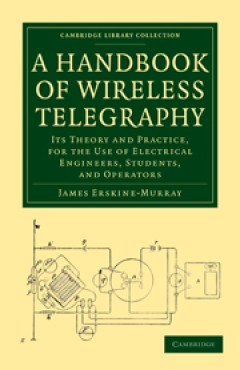
A Handbook of Wireless Telegraphy Its Theory and Practice, for the Use of El…
James Erskine-Murray (1868–1927) was a Scots expert in wireless technology who studied under Lord Kelvin for six years at Glasgow University before arriving at Trinity College, Cambridge as a research student. He eventually became a telegraphy consultant and published this work in 1907. Its aim was to inform engineers, students, and radio operators about many aspects of a rapidly changing tec…
- Edition
- -
- ISBN/ISSN
- 9780511795411
- Collation
- -
- Series Title
- Cambridge Library Collection - Technology
- Call Number
- -
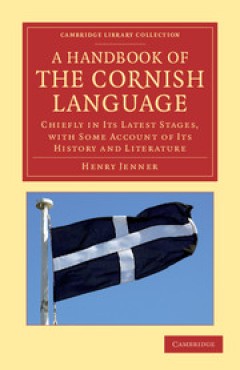
A Handbook of the Cornish Language Chiefly in its Latest Stages, with Some A…
'Why should Cornishmen learn Cornish?' asked Henry Jenner (1848–1934) in the preface to this 1904 publication, dating from the beginnings of the Cornish revival. Jenner admits that 'the reason ... is sentimental and not in the least practical'. Born in Cornwall, but raised in south-east England, Jenner worked at the British Museum from 1870 to 1909 and was elected a fellow of the Society of A…
- Edition
- -
- ISBN/ISSN
- 9781139207119
- Collation
- -
- Series Title
- Cambridge Library Collection - Linguistics
- Call Number
- -
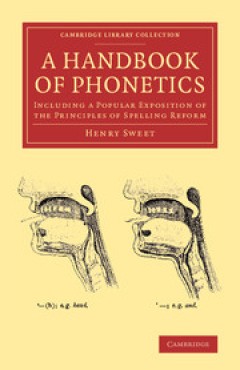
A Handbook of Phonetics Including a Popular Exposition of the Principles of …
As a phonetician and comparative philologist, Henry Sweet (1845–1912) produced work that was regarded as seminal, particularly in Germany, where he received greater academic recognition than in England. His textbooks on Old English have long been considered standard works. As well as theoretical and historical studies, he also became involved in more practical aspects of linguistics, devising…
- Edition
- -
- ISBN/ISSN
- 9781139854665
- Collation
- -
- Series Title
- Cambridge Library Collection - Linguistics
- Call Number
- -
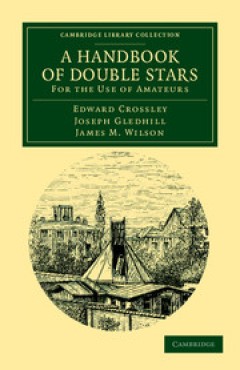
A Handbook of Double Stars For the Use of Amateurs
Used to describe both binary systems and optical doubles, the term 'double star' has been familiar to astronomers since the seventeenth century. This book, first published in 1879, outlines the history of their study, and describes the methods and equipment needed in order to observe the fascinating phenomenon. Written for non-specialists by Fellows of the Royal Society Edward Crossley (1841–…
- Edition
- -
- ISBN/ISSN
- 9781139108980
- Collation
- -
- Series Title
- Cambridge Library Collection - Astronomy
- Call Number
- -
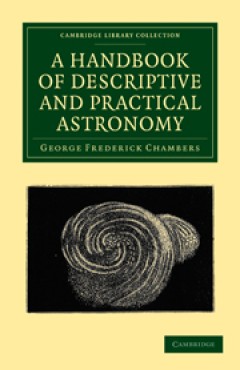
A Handbook of Descriptive and Practical Astronomy
This handbook by George Frederick Chambers (1841–1915), a young and enthusiastic amateur astronomer, became a best-seller soon after its publication in 1861 and made Chambers' reputation as a popular astronomy writer. The work is divided into ten parts covering the following topics: the planets of our solar system; eclipses; gravity and tides; phenomena including aberration and refraction; co…
- Edition
- -
- ISBN/ISSN
- 9780511709937
- Collation
- -
- Series Title
- Cambridge Library Collection - Astronomy
- Call Number
- -
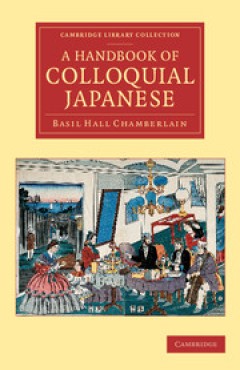
A Handbook of Colloquial Japanese
Travelling in order to recover from a nervous breakdown, Basil Hall Chamberlain (1850–1935) arrived in Yokohama, Japan, in May 1873. He was immediately fascinated by traditional Japanese culture. At the same time, the national drive for modernisation in the wake of the Meiji Restoration had created a demand for teachers of English. Chamberlain was taken on as a tutor in the Imperial Japanese …
- Edition
- -
- ISBN/ISSN
- 9781316134405
- Collation
- -
- Series Title
- -
- Call Number
- -
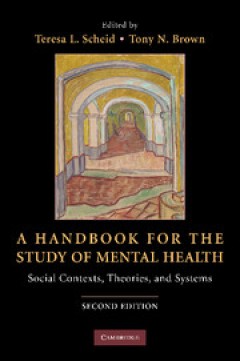
A Handbook for the Study of Mental Health Social Contexts, Theories, and Sys…
The second edition of A Handbook for the Study of Mental Health provides a comprehensive review of the sociology of mental health. Chapters by leading scholars and researchers present an overview of historical, social and institutional frameworks. Part I examines social factors that shape psychiatric diagnosis and the measurement of mental health and illness, theories that explain the definitio…
- Edition
- -
- ISBN/ISSN
- 9780511984945
- Collation
- -
- Series Title
- Cambridge Handbooks of Psychology
- Call Number
- -
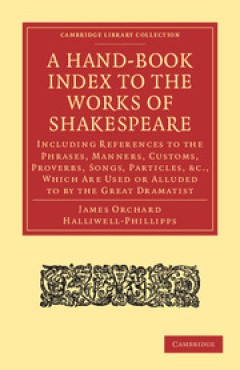
A Hand-Book Index to the Works of Shakespeare
Published in 1866, this is a meticulous, encyclopaedic listing of almost every word, place and character in Shakespeare's works. A must-have for every student of English literature, it is also an unparalleled guide for those left in the dark by Shakespearean English. James Orchard Halliwell-Phillipps (1820–1889), a renowned scholar, antiquarian, and collector of books on Shakespeare, provided…
- Edition
- -
- ISBN/ISSN
- 9780511693045
- Collation
- -
- Series Title
- Cambridge Library Collection - Literary Studies
- Call Number
- -
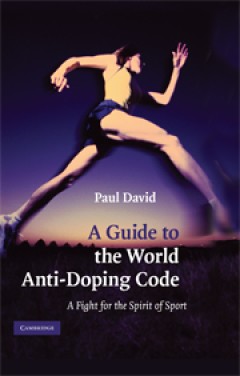
A Guide to the World Anti-Doping Code A Fight for the Spirit of Sport
Doping is the biggest problem facing sport. The World Anti-Doping Code has been adopted by sporting organisations worldwide at both national and international level to provide a consistent and harmonised approach to anti-doping measures. The adoption of the Code, and its interpretation and application by the Court of Arbitration for Sport, has brought about great changes in sports law. This boo…
- Edition
- -
- ISBN/ISSN
- 9780511495571
- Collation
- -
- Series Title
- -
- Call Number
- -
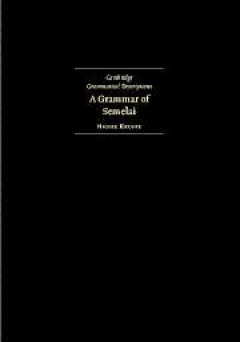
A Grammar of Semelai
Semelai is a previously undescribed and endangered Aslian (Mon-Khmer) language of the Malay Peninsula. This book - the first in-depth description of an Aslian language - provides a comprehensive reference grammar of Semelai. Semelai intertwines two types of morphological system: a concatenative system of prefixes, suffixes and a circumfix - acquired through extended contact with Malay - and a n…
- Edition
- -
- ISBN/ISSN
- 9780511550713
- Collation
- -
- Series Title
- Cambridge Grammatical Descriptions
- Call Number
- -
 Computer Science, Information & General Works
Computer Science, Information & General Works  Philosophy & Psychology
Philosophy & Psychology  Religion
Religion  Social Sciences
Social Sciences  Language
Language  Pure Science
Pure Science  Applied Sciences
Applied Sciences  Art & Recreation
Art & Recreation  Literature
Literature  History & Geography
History & Geography